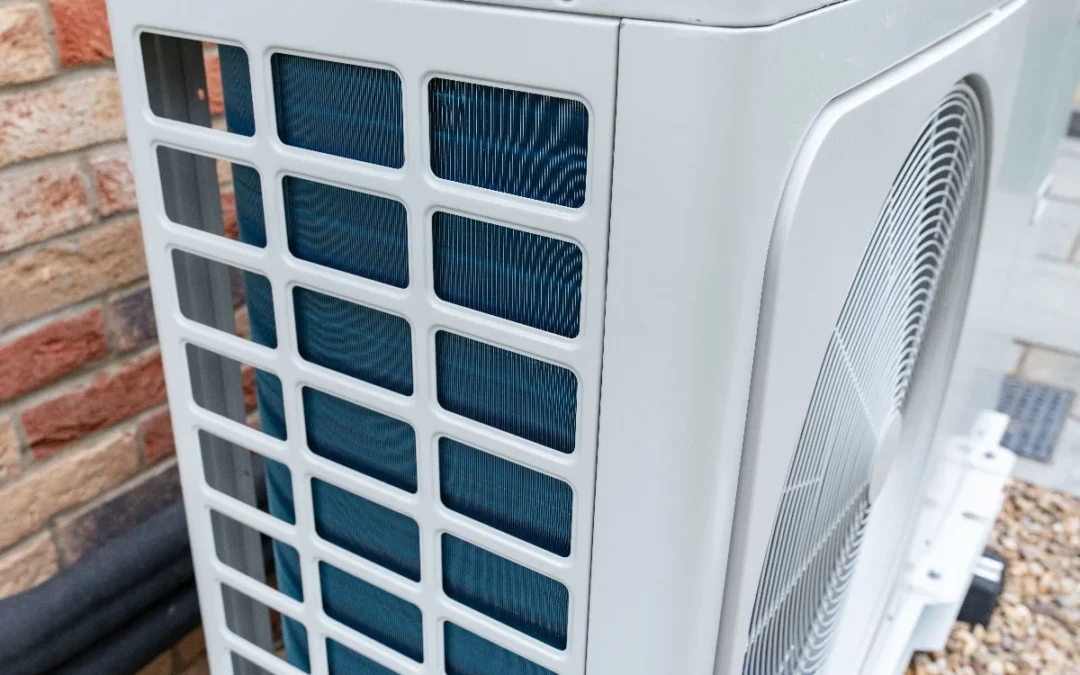Air source heat pumps are undoubtedly one of the most cost-effective and accessible ways to transform your central heating systems into a greener, cleaner and cheaper upgrade. However, many homeowners we speak to find the array of brands and heat pump sizes confusing.
As interest in low-carbon heating increases, there are multiple options, and the right solutions for your home might depend on the size of the property, the average temperature you like to maintain, and how much heat is lost through glazing and insulation.
In this guide, the Gas Worx team clarifies the factors that will influence your choice of air source heat pump and explains the space requirements you’ll need depending on the number of occupants within your home.
How Much Space Do You Need to Fit an Air Source Heat Pump?
Let’s start by talking about the outdoor space needed to fit a heat pump unit. Many people opt for an air source heat pump over a ground source system, since they require less external space, with a much smaller unit size.
In short, your air source heat pump should be fitted outside your property with direct access to ambient air – it needs plenty of space around the unit to extract heat from the air and to ensure an engineer can get to the heat pump to complete servicing or maintenance works.
The vast majority of cases where air source heat pumps don't seem to be working well are due to the placement of the unit, not the efficiency of the heat pump itself. We’d always recommend speaking with an experienced renewable energy consultant if you’re unsure of the right positioning.
Most people opt to fit their heat pump to the side or rear of the property, along a side return or on the wall, elevated from the floor but without being difficult to reach. If a side return is too narrow or enclosed, we might suggest installing your pump elsewhere to ensure you have plenty of airflow.
Other guidelines include fitting air source heat pumps at least a metre away from your boundary and checking whether the low-level noise will present a problem – this is rarely an issue but worth considering if you’re thinking of fitting your heat pump directly outside a window.
Choosing the Right Size Air Source Heat Pump
Our next area to work through is the size of the pump itself. As we’ve mentioned, there are lots of models and brands on the market. Generally, heat pumps come in sizes from 5kW to about 16kW, and the larger the property, the more powerful the pump needs to be.
These units are typically around one to 1.5 metres tall and up to around one metre wide – comparable to the size of a standard residential washing machine to give you a good idea.
A compact 5kW air source heat pump will normally be fine for a property that is up to 100 square metres with three bedrooms. If your home is double that size, we’d likely recommend a unit with an output of 10kW.
Other factors will also dictate the size of the heat pump you need:
- Poor insulation: The best practice is to upgrade your insulation before fitting a heat pump to avoid losing a large proportion of the heat generated. If you have an older, draughty building and lose a lot of heat, you may need a more powerful model.
- Property size: A larger home with more rooms or higher ceilings will need a more robust heat pump than a modern, small residence with fewer rooms.
- Heating types: Air source heat pumps work well with underfloor heating, but your requirements may depend on the number of radiators you have, how large they are, and whether you have a hot water cylinder.
As an indication, a property without modern insulation will normally require a heat pump with around 1.5 times the output the same home with a good level of heat retention would need. It may be more convenient to improve the energy efficiency within your home before you move forward.
Air Source Heat Pumps: Why Does Size Matter?
Getting it right and seeking advice from a local professional is hugely important. The average household can save thousands of pounds by switching from a gas boiler to an air source heat pump, but those savings won’t be quite so impressive if your heat pump is too large or too small.
Larger models, of course, cost more – as do those with more advanced features such as automatic programming. If you have a big house and need to keep it to a comfortable temperature, you will need a larger unit. A bigger heat pump will ensure you don’t risk having insufficient hot water for your family to shower or finding that radiators never get warm enough.
Purchasing a smaller heat pump might cost less initially, but your heating won’t be suitable for the size of your home. Another issue is that a heat pump is generally designed to last around 20 years. If your pump is under excessive pressure due to being run continually to try and keep up with your heating demands, it will need to operate in shorter cycles, which means the motor will inevitably wear down far more quickly than it should.
Likewise, if you invest in a larger heat pump for a smaller property you will spend more than necessary, reducing the total savings you can make, meaning it takes longer for your heat pump to pay for itself in utility cost savings.
Expert Advice on Air Source Heat Pumps Sizing
As we’ve demonstrated, there isn’t one type or size of air source heat pump that will be right for every home, and choosing the wrong model could erode your cost savings or result in spending over budget without any benefits.
If you’d like further advice about picking the right unit for your home or assessing whether your residence needs initial insulation or energy efficiency work before installing a heat pump, please get in touch with the Gas Worx team.







